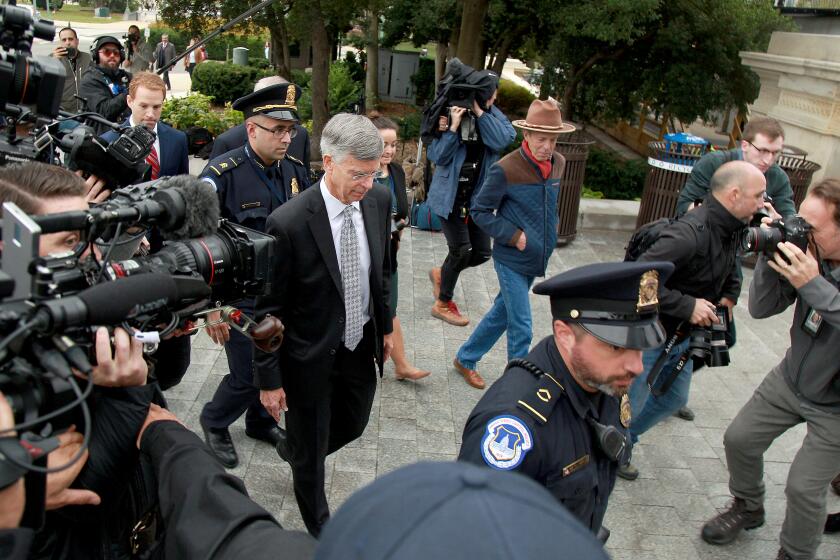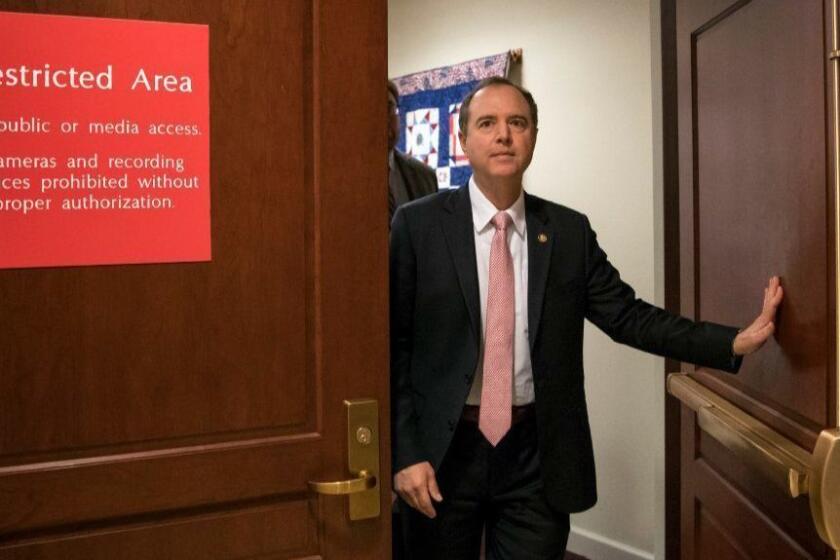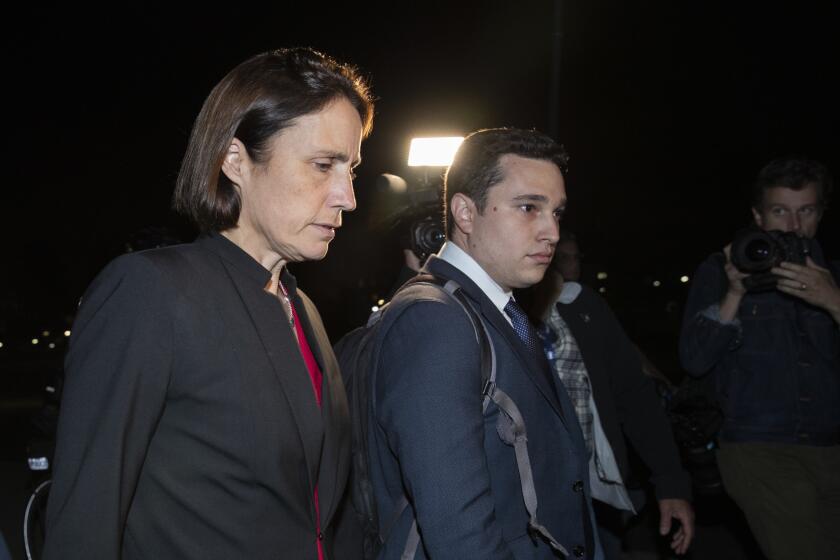Who are the impeachment witnesses this week and what will they say?
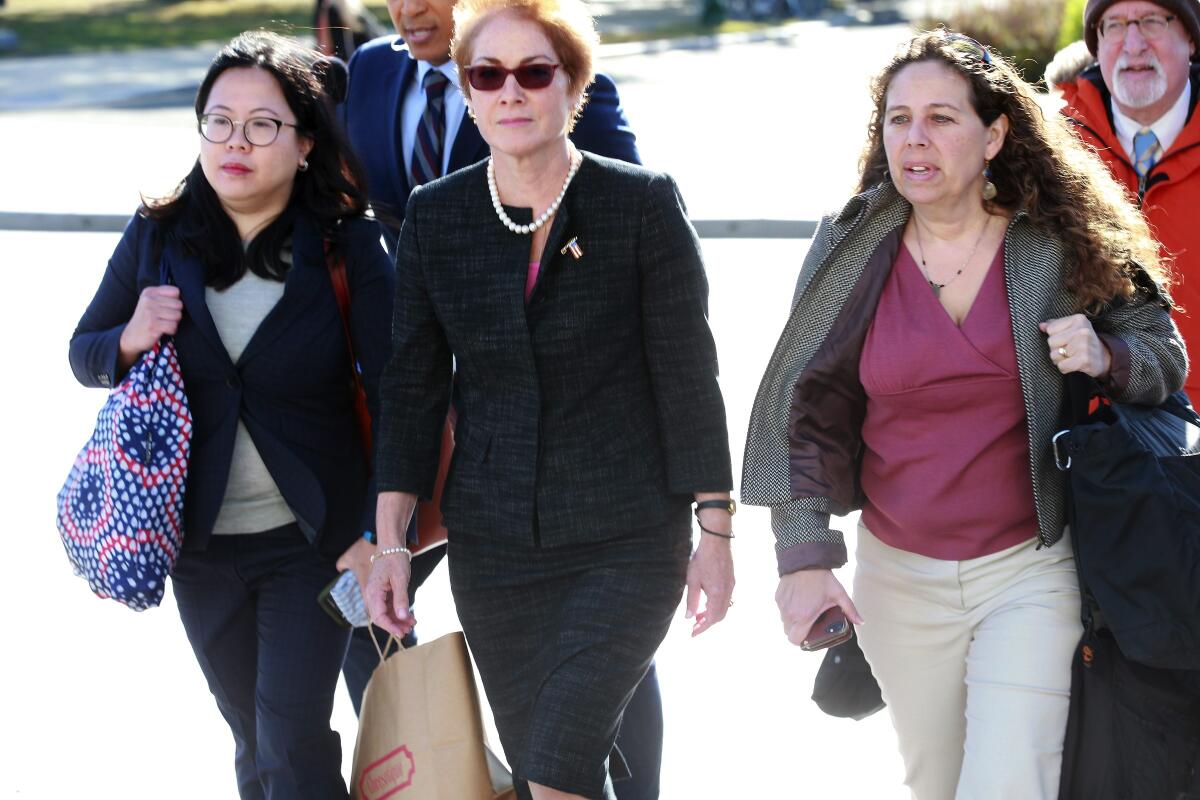
WASHINGTON — Three State Department employees will appear before the House Intelligence Committee this week, the first public hearings as the House weighs whether to bring articles of impeachment against President Trump.
The witnesses, two on Wednesday and one of Friday, are expected to paint a damaging portrait of Trump and his attorney Rudolph W. Giuliani leveraging America’s relationship with Ukraine over many months as they sought to coerce Ukrainian officials to open investigations into Trump’s political rivals.
Each of these witnesses provided lengthy closed door depositions in recent weeks, and the transcripts of their testimony has been released, giving us a good idea of what Democrats and Republicans are likely to ask during public, televised hearings.
William B. Taylor, Jr.
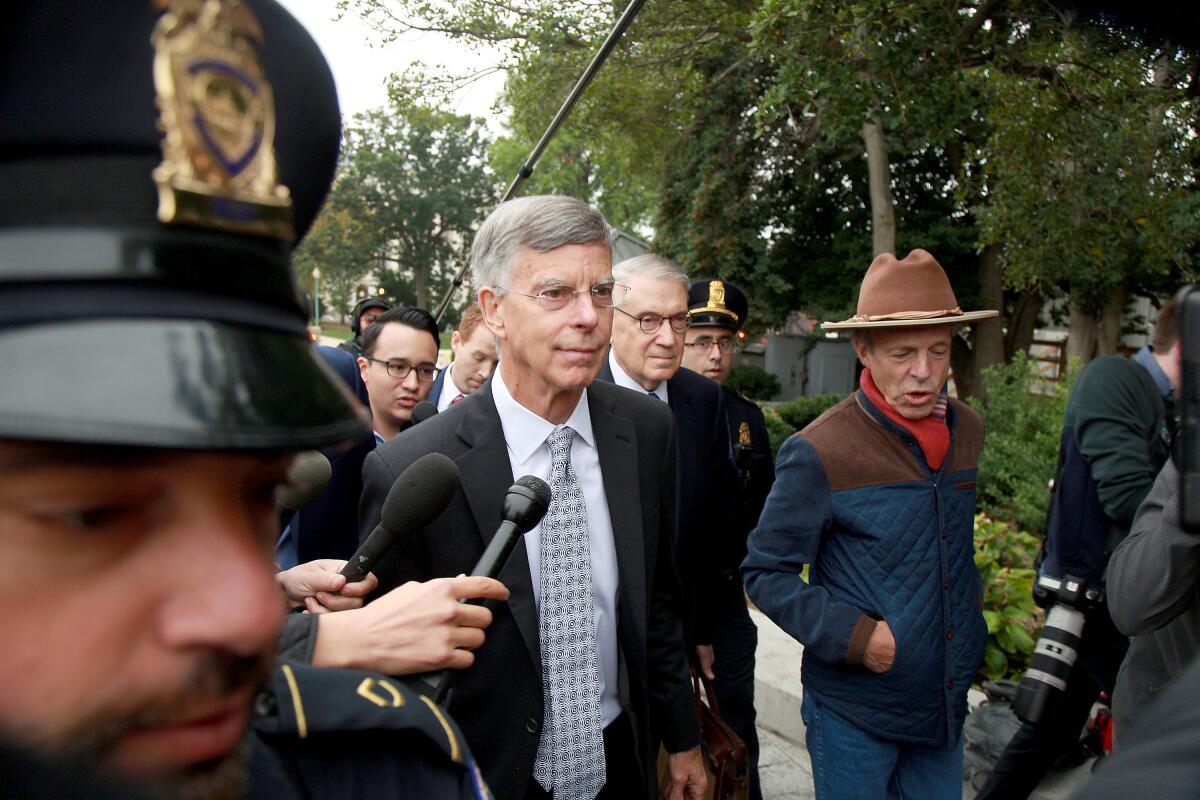
Taylor, the top U.S. diplomat in Ukraine, will lead off the public hearings Wednesday. Taylor testified behind closed doors that he had a “clear understanding” that releasing $400 million in U.S. aid for Ukraine was conditioned upon Ukraine investigating Trump’s political rivals. Taylor’s deposition was bolstered by meticulous notes, and Democrats think the war veteran and West Point grad will be a star witness.
The transcript of Taylor’s deposition shows he was concerned about the “irregular, informal channel of U.S. policymaking” made up of Giuliani, EU Ambassador Gordon Sondland, Secretary of Energy Rick Perry, and Special Envoy to Ukraine Kurt Volker that was setting Ukraine policy outside of normal State Department protocol at the president’s request.
He also said he was alarmed by the insistence that a White House meeting between Zelensky and Trump was being conditioned upon Zelensky agreeing to investigations, something he realized before the July 25 phone call between Trump and Zelensky.
Taylor has emerged as a key witness in the impeachment inquiry after delivering explosive closed-door testimony to congressional investigators Oct. 22.
“By mid-July it was becoming clear to me that the meeting President Zelensky wanted was conditioned on the investigations of Burisma and alleged Ukrainian interference in the 2016 U. S. elections. It was also clear that this condition was driven by the irregular policy channel I had come to understand was guided Mr. Giuliani,” he said in his opening statement at his deposition.
Taylor testified that he pleaded with Zelensky not to get involved in U.S. politics by committing to the investigations.
He also told House investigators that the foreign policy gambit of pursing political dirt against Joe Biden was a “nightmare,” that he believed it was likely to embolden Russia and he threatened to resign over it.
Expect Republicans to stress that Taylor wasn’t on the July 25 call between Trump and Zelensky, and only learned about its contents when the public did in late September.
George P. Kent
Kent, the deputy assistant secretary of State for Europe and Eurasia, will testify Wednesday alongside Taylor on Wednesday. He is another longtime civil servant who Democrats think can speak to their entire impeachment narrative. Ukraine policy was supposed to be his domain, but Kent testified he was instructed to stand down and instead go through Sondland, Perry and Volker, whom the president had instructed to work with Giuliani.
Democrats want Kent to talk about Ukrainian officials and Giuliani’s efforts to have Yovanovitch removed as ambassador. According to the transcript of his deposition, Kent said that he was warned by his superiors to “keep my head down and lower my profile in Ukraine.” He’s likely also be asked about his impression before the July 25 phone call became public that aid to Ukraine was being withheld until Zelensky committed to investigations. He testified that Sondland told other senior diplomats that “POTUS wanted nothing less than President Zelensky to go to microphone and say investigations, Biden, and Clinton.”
Democrats and Republicans at the public impeachment hearing will battle for the support of Americans who haven’t made up their minds about removing President Trump.
Republicans will likely stress that Kent has no first-hand knowledge of many of the events Democrats are investigating, and that he too learned details of the July 25 call only when the public did. They’ll also likely ask Kent about the concerns he raised about Hunter Biden’s role with the gas company during the Obama presidency that were rebuffed.
“The message that I recall hearing back was that the Vice President’s son Beau was dying of cancer and that there was no further bandwidth to deal with family related issues at that time,” Kent said of his 2015 conversation with an unnamed Biden staff member.
Marie Yovanovitch
Yovanovitch, a long-serving well-respected diplomat who was recalled as the U.S. ambassador to Ukraine in May after what has been described as a smear campaign backed by Trump and Giuliani, will testify Friday.
In the transcript of her deposition Yovanovitch warned lawmakers about the dangers of foreign actors being able to manipulate U.S. policy, and spoke at length about the effort to remove her as an impediment to Giuliani’s efforts. Yovanovitch testified that she began hearing rumblings of Giuliani inserting himself into Ukrainian policy in late 2018. By February, “one of the senior Ukrainian officials was very concerned, and told me I really needed to watch my back,” she testified.
Fiona Hill told House impeachment investigators Monday that she had strongly and repeatedly objected to the ouster earlier this year of former ambassador to Ukraine Marie Yovanovitch.
Democrats likely expect her testimony to help make their case that efforts to pressure Ukraine to act on the 2016 election or the Bidens go far beyond a single phone call.
Expect Republicans to stress that she too was not on the July 25 call, and that Trump lost confidence in her and recalled her to Washington. They’ll likely also highlight that Yovanovitch told lawmakers in her deposition that she supported Trump’s decision to offer lethal aid to Ukraine, something Obama resisted, and she supported U.S. efforts to get Ukraine to fight corruption.
More to Read
Get the L.A. Times Politics newsletter
Deeply reported insights into legislation, politics and policy from Sacramento, Washington and beyond. In your inbox three times per week.
You may occasionally receive promotional content from the Los Angeles Times.

